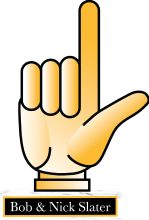“I do love email. Wherever possible I try to communicate asynchronously. I’m really good at email.” Elon Musk
Before we get into the nitty-gritty of how to write a business email (and why it is so important), let us posit this question to our gentle readers: Are you, like Elon, a fan of asynchronous communication?
 What exactly is “asynchronous communication”? It’s a form of communication that doesn’t expect an immediate response. Email is, perhaps with some narrow exceptions, a great example of asynchronous communication. You send an email and don’t expect a lightning-quick response. If you did expect such a response, you would choose another form of communication. You might even do what so many in my generation hate to do: pick up the phone!
What exactly is “asynchronous communication”? It’s a form of communication that doesn’t expect an immediate response. Email is, perhaps with some narrow exceptions, a great example of asynchronous communication. You send an email and don’t expect a lightning-quick response. If you did expect such a response, you would choose another form of communication. You might even do what so many in my generation hate to do: pick up the phone!
Your emails give readers a glimpse into your personality, writing skill, work habits, and, if you’re not careful, your stress level. Perhaps even your workplace status. A person’s level in an organization can often be discerned by reading her emails. Business emails written by those in the lower echelons, and/or younger employees, tend to be too casual in tone, with abbreviations and slang that are more appropriate for casual texting. Those nearer the top write emails as they would a memorandum to their manager, with a formal tone, good grammar, and proper punctuation. Senior executives expect their people to write proper emails. Here’s how you do so in seven steps.
- Create a strong subject line header that identifies the purpose of the email. Include a strong verb when your email calls for action. If the email is time-sensitive, say so in the subject line.
- Start your email text with the recipient’s first name. Especially when you’re emailing someone you don’t regularly email, starting with his or her name adds a personal touch. For a more personal touch, add the word “you” when appropriate. “It was good to meet” becomes “it was good to meet with you.” “I look forward to meeting again” becomes “I look forward to meeting with you again.”
- Write newspaper style and get to the point. Put your most important material first. Newspaper editors say, “Don’t bury the lead,” meaning that the title and beginning paragraphs of a newspaper story should convey the gist of the news, with the detail following. Contrast this approach with “magazine-style,” where the story builds to its climax. So write in a hierarchical way, with information included in the order of its importance in the document. And be brief. Any email that exceeds a couple of long paragraphs suggests a conversation may be more effective — pick up the phone or walk down the hall.
- Apply the clear, concise, and correct principles of Look Out Above! to every email. Clear writing is the first step to effective emails. Determine why you are writing, what you want to say, and how to say it. And what you can omit. Where you are introducing the topic (versus responding), take the time to think and plan before you start writing. Often job-related emails pertain to sharing information or calling for action, or a combination of both. Ask yourself, what do I want the recipients to know, and what do I want them to do? Once your email is clear — structured, simple, and powerful — tighten it further by using as few words as possible. While clarity should not be sacrificed for brevity, write concisely to help ensure your writing gets read, and to promote understanding and action. Finally, once you have a solid draft that is both clear and concise, you can now perfect it. Strive to perfect your spelling, punctuation, and grammar. You won’t literally be perfect but set a high bar for yourself.
 Since typos are more likely to occur when thumbing email replies on your phone, consider adding a standard message at the conclusion that says “Sent from my mobile device. Please pardon typos.” If dictating emails using Siri or her ilk, beware. She once translated my message “Good luck in the boardroom” to “Good luck in the bathroom.”
Since typos are more likely to occur when thumbing email replies on your phone, consider adding a standard message at the conclusion that says “Sent from my mobile device. Please pardon typos.” If dictating emails using Siri or her ilk, beware. She once translated my message “Good luck in the boardroom” to “Good luck in the bathroom.” - Use good judgment. Be careful about what you put in writing, especially emails and texts, and be mindful of your language when you elect to write. Common sense dictates that you do not write harmful emails that your company’s lawyers will be compelled to disclose (your emails remain on the company’s server even if you hit “delete”). You can act with integrity without creating a paper trail for opposing lawyers.
- Delay replying to an offensive email. Write your reply and save it as a draft, but don’t send until you have calmed down and are thinking rationally. If you can sleep on it, all the better. “Flaming” emails written late at night when you’re tired, or in ALL CAPS BECAUSE YOU’RE ANGRY, are unlikely to help and reflect poorly on you. Your delay in responding may suggest to the sender — and rightly so — that the email you received was inappropriate, requiring a considered response.
- Don’t clutter your email signature. Cut the inspirational quotes, goofy fonts, or, unless they pertain to your job, the dozen social media icons with links to your various social accounts.
A significant amount – for some the vast majority – of your “business writing” is likely to come in email form. We likely don’t have to tell you how much of your workday is spent composing or responding to emails, especially with remote working being so prevalent today. Doesn’t it make sense to make your emailing a strength, rather than a weakness? If your business emails are consistently casual and careless, especially during the first few years of your career, it will be noticed and your reputation, and your opportunities, could suffer. Instead, build your personal brand with crisp and effective emailing.


